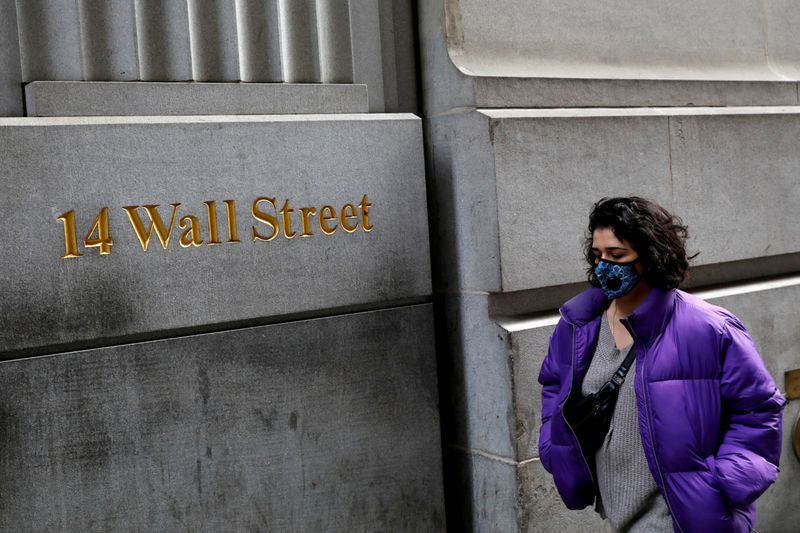By Herbert Lash
NEW YORK (Reuters) - Crushing asset sell-offs ranging from bitcoin to precious metals and European stocks accompanied Wall Street's slide into bear market territory on Thursday, as investors liquidated positions across their portfolios to raise cash.
Bitcoin (BTC=BTSP) dropped 26%, marking its largest fall in seven years, as fears of the coronavirus' economic impact unnerved investors. Palladium and platinum - precious metals that are key components of auto exhaust systems - posted their biggest declines since the 1980s as they fell 20.4% and 11.1%, respectively.
Canada's main stock market plunged by the most on record and the oil-sensitive Canadian dollar weakened to a four-year low as Brent crude tumbled 7.2%, while Europe's STOXX 600 index (STOXX) fell more than 11%.
The sell-offs were spurred by factors ranging from uncertainty over the virus' trajectory and its economic impact, to worries over how a U.S. travel ban to Europe will hit airlines and demand for oil.
Some selling also likely came from investors raising cash to meet financing requirements on leveraged equity positions that came under pressure as the Dow Jones Industrial Average (DJI), S&P 500 (SPX) and Nasdaq Composite index (IXIC) all fell more than 9%.
David Meger, director of metals trading at High Ridge Futures in Chicago, said traders and investors sold every asset class.
"It is a rush to cash and a mild panic-type move," Meger said. "People are selling gold and silver positions to finance equity positions or other situations."
Demand for cash has grown in recent weeks, as markets became more turbulent. U.S. money market funds took in a record $87.6 billion in the week to Wednesday as stocks on Wall Street buckled, data from Lipper showed.
The double-digit sell-off in palladium was bolstered by the successful development of a new tri-metal auto catalyst allowing for the partial substitution of the metal with cheaper platinum, a development announced earlier in the week, trader said.
Oil-related securities also marked double-digit declines, with the S&P energy index (SPNY) falling 12.3%.
MSCI's widely followed all-country world index posted its biggest single-day decline in 32 years, of 9.3%, as European shares tumbled.
"We're probably going to continue to see more panic selling and as we near that capitulation, you're going to see further downward pressure on risky assets," said Edward Moya, senior market analyst at OANDA in New York, referring to the time when investors give up trying to recover lost gains.
